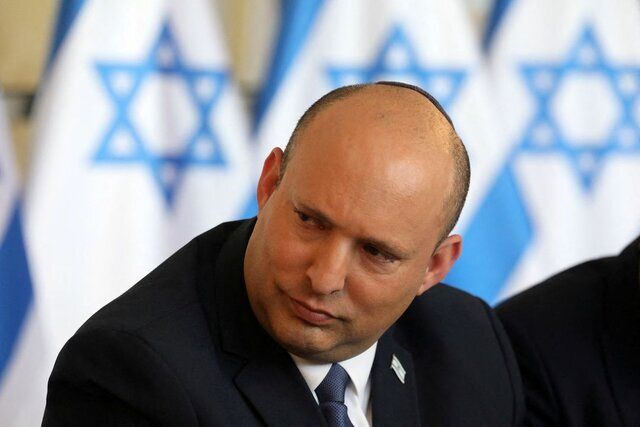Jafar Qanadbashi, in an interview with the website of the Strategic Council on Foreign Relations, continued: Various reasons led to the dissolution of the Zionist regime’s cabinet, and one of the reasons is the existence of small parties that are attributed to ethnic and tribal groups.
According to the expert, another reason is that the Zionists have eliminative approaches at times of crisis.
Qanadbashi, pointing out that the Zionists were divided into two parties, the right-wing Likud and the left-wing Labor Party, during the Cold War, explained: These two parties were in power under Shimon Peres. That is to say, sometimes power was in the hands of the Likud Party and sometimes in the hands of the Labor Party, but after the end of the Cold War and the emergence of the problems in the Zionist regime, the image of the right-wing Likud Party was slightly tarnished and the Labor Party did not have the former image.
He continued: Although the Likud party is still stable, the lack of titles, slogans, and personalities of the first generation of this party has caused relative anarchy within the right-wing Likud party and even the political atmosphere of the cabinet.
According to Qanadbashi, severe internal problems in the occupied territories have also led to disputes, adding: After 2000, the Zionists were forced to accept a series of defeats that added to their internal problems; among other things, the Zionist regime was forced to withdraw from Lebanon and Gaza and at the same time, the defeat of the Zionist regime in the numerous wars with Gaza caused them many economic problems.
This expert on the Middle East affairs stressed: Apart from those issues, the struggles of the Palestinian people inside the 1948 territories have further weakened their economy and tourism industry.
The expert also referred to the regional problems of the Zionist regime and said: the change of balance in favor of the internal opposition in the Zionist regime, the failure to complete ambitious plans such as the “Deal of the Century”, failure of the West Bank annexation plan and the annual opposition of various countries in the UN General Assembly with the measures taken by that regime caused more conflicts between the Zionist parties.
Qanadbashi further elaborated: In fact, due to those internal and external problems, different parties have always blamed each other.
Qanadbashi says that the most important issue for the Zionist regime at the moment is the lack of personalities that are accepted by most Zionists.
The expert continued: Now that the regime’s parliament has been dissolved and re-elections are being held, given Netanyahu’s readiness to return as prime minister and lack of a charismatic figure, he is likely to run for the office again.
The expert on the Middle East affairs also pointed to the challenges facing the Zionist regime’s cabinet, noting that the process of normalization of relations between Arab countries and the Zionist regime has been stalled for some time and said: The Zionists see their political life and consistency in advancing the process of normalization with the Arab countries; therefore, any party that comes to power in order to advance the situation in a way tries to pursue this agenda despite many obstacles.
Qanadbashi pointed to the reduction of practical US support during Biden’s presidency, especially in the political arena, from Tel Aviv as another problem for the Zionist regime’s next cabinet, adding: that Zionist citizens want the regime to continue to have the full support of the West and the United States; while in the Western world, this perception and mindset is gaining strength that the Zionist regime has become a very costly ally for the US which itself has problems. For this reason, we have recently seen a decline in Washington’s support for Tel Aviv.
He added: Some even believe that perhaps the costly nature of that ally for the United States and even the obstacles that continuation of this support creates in Washington’s relations with some Arab countries opposed to the Zionist regime, has led to the separation of the United States from this regime; in fact, the United States has withdrawn itself from supporting Tel Aviv policies.
In conclusion, Qanadbashi stated that despite all the problems caused by the dissolution of the cabinet, the Zionist regime’s diplomatic apparatus is trying to benefit from Biden’s visit to the region to solve many problems and fill in the gaps and noted: One of the most important issues is to prepare the ground for the normalization of relations with Saudi Arabia, which they want to implement by re-granting the islands of Sanafir and Tiran to Saudi Arabia. Of course, it is not clear yet to what extent Biden can achieve those objectives on his upcoming trip to Tel Aviv and Riyadh.










0 Comments